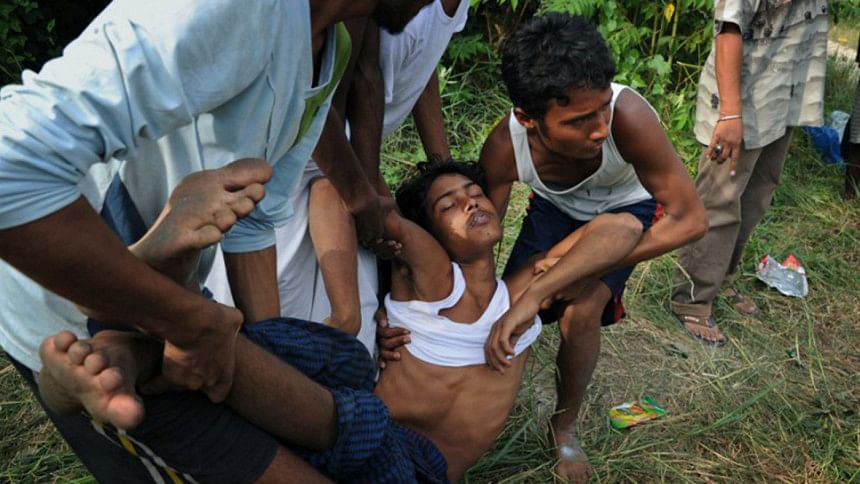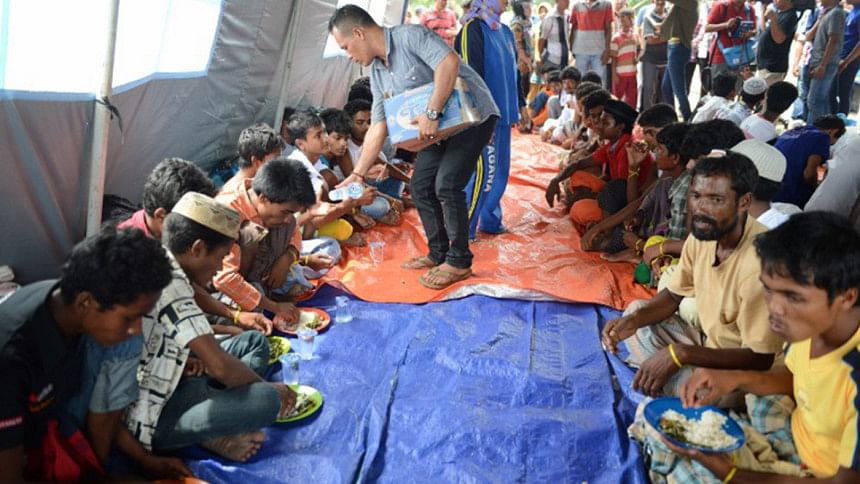Indonesian fishermen 'told not to save migrants' (video)

Fishermen in Indonesia's Aceh province say they have been told by officials not to rescue migrants from boats off the coast, even if they are drowning.
At least 700 Bangladeshis and Rohingyas from Myanmar were rescued off Aceh last week by locals, bringing the numbers in camps there to at least 1,500.
An army official said it would be illegal for any more of the migrants to come to shore.
All countries in the region have closed their borders to the migrants.
Thousands of people - mostly Rohingya Muslims fleeing persecution and poverty in Myanmar, but also Bangladeshis looking for work - are thought to be stranded out at sea.
Aid agencies say people on board the boats are severely malnourished, and should be offered immediate assistance. Survivors who have made it to shore say there have been deadly fights on board over food.
Analysis: Jonathan Head, BBC News, southern Thailand
On Monday, some of the Acehnese people involved in last week's rescue said fishing boat operators were now being told by military officials not to carry out any more rescues.
Nobody wanted to speak on the record fearing they would be punished by the government, says the BBC's Martin Patience in Langsa, where the migrants are being cared for.
But one fisherman told the BBC that despite the warning they would continue rescuing people if they saw them drowning.
"They're human beings; we need to rescue them," he said.
Military spokesperson Fuad Basya said fishermen could deliver food, fuel and water to the boats, or help with repairs, but that bringing them to shore would constitute an illegal entry into Indonesia.
Meanwhile the mayor of Langsa has said the city has no budget for aid on this scale, and that it has received no help from Jakarta.
"In short, yes, we need some help, immediately, from our national government or any other institution, including NGOs, to take care of the Rohingyas who are stranded in our place," said Usman Abdullah.The UN has called on all nations in the region to give aid and shelter to people in distress at sea.

Why has this crisis erupted?
- Rohingya Muslims mainly live in Myanmar - largely in Rakhine state - where they are not considered citizens and have faced decades of persecution.
- Rights groups say migrants feel they have "no choice" but to leave, paying people smugglers to help them. The UN estimates more than 120,000 Rohingyas have fled in the past three years.
- Traffickers usually take the migrants by sea to Thailand then overland to Malaysia, often holding them hostage until their relatives pay ransoms.
But Thailand recently began cracking down on the migrant routes, meaning traffickers are using sea routes instead, often abandoning their passengers en route

 For all latest news, follow The Daily Star's Google News channel.
For all latest news, follow The Daily Star's Google News channel. 



Comments